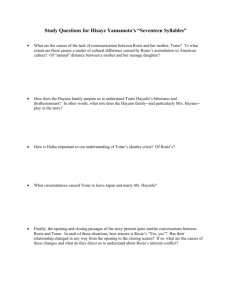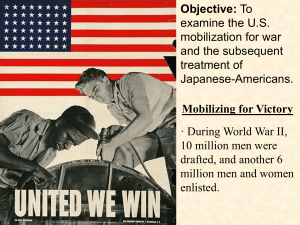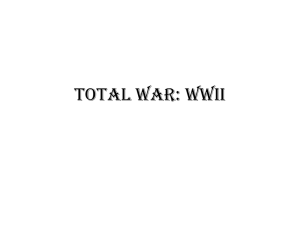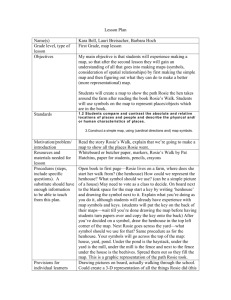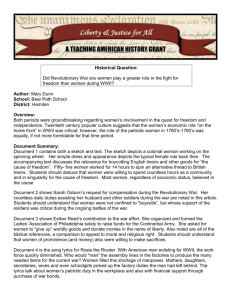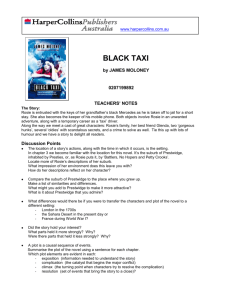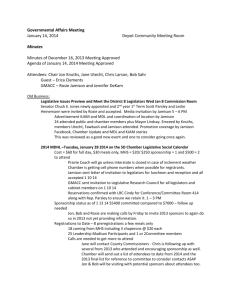Shelby`s presentation - Lincoln County Schools
advertisement
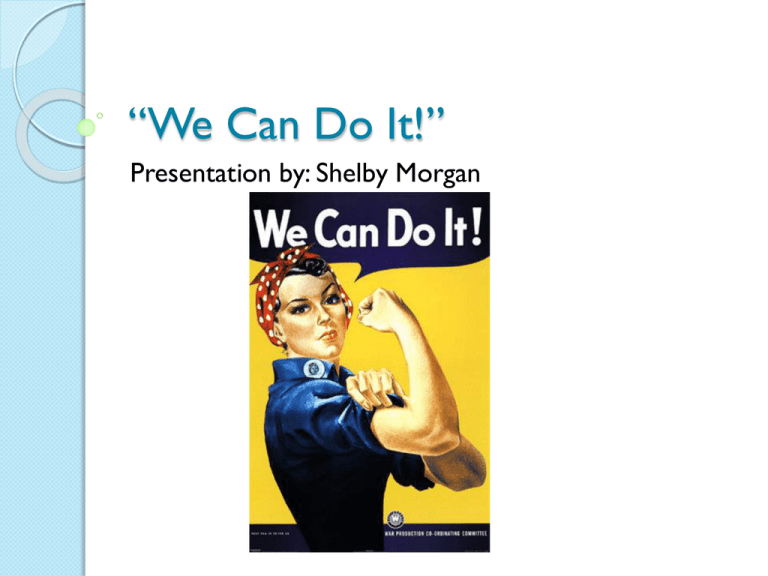
“We Can Do It!” Presentation by: Shelby Morgan This popular image by J. Howard Miller was first made famous in World War 2. This image has been made a famous icon in the feminist world because of its encouraging image of women taking charge. The image is of a factory worker from Michigan named Geraldine Hoff, who has became more famously known as “Rosie the Riveter” The purpose of the photo “We Can Do It” is to encourage women to rise up and work And support equal opportunity between men and women, and even fight in the war. This image created a widespread act of women working and not sitting at home and Strengthened the feminist world. Point of view/ intention The intention for this image was to encourage women of that time period to rise up and work. It also encourages women th they are strong and deserve the same rights as any man does intention of this image was to strengthen the feminist views a ways. The audience of this photo is any woman who is viewing the poster. In Specific, this poster speaks to the audience of feminist women or simply Women who believe in equality between men and women. •The background is a light yellow color which makes the words on the Navy blue quote bubble seem to boldly stand out. •Rosie the Riveter is wearing a bright red and white polka dot bandana Which represents that she is making a bold statement. •As if the bandana was not bold enough, Rosie is seen flexing her Muscles as if to say “women are strong, possibly even as strong as men.” •Rosie is wearing a Navy blue factory outfit which is a bold contrast with The yellow background, but also shows that she is a strong, working Woman. “We Can Do It” appeals to ethos because J. Howard Miller was Credible because he worked for “westinghouse electric” which was An American manufacturing company. It also appeals to ethos Because “Rosie” (Geraldine) was a real woman, not a paid model, not a painting, but an actual woman who worked in a factory everyday. Since Rosie was a real person, the audience felt they could relate to the image and the message it was conveying, so the response from women everywhere was positive. This photo does not clearly represent Logos in any way, but heavily Represents Ethos and Pathos. This photo greatly appeals to Pathos because it appeals to the emotions of women. The fact that Rosie is a woman who is boldly standing up for women’s equal rights makes women all over the Country feeling inspired to do the same. For years before this photo women were encouraged to stay home, cook, and clean. In times of War? Women were encouraged to help by saving scrap food, or ration the food. After Rosie the riveter? Women felt like they had the strength to do more, and that they have the same rights. Women had a new sense of pride after feeling encouraged by Rosie to do more and stand up. Citations Sorensen , Aja. "http://www.nps.gov/pwro/collection/website/rosie.htm." . N.p.. Web. 25 Feb 2013. Miller, Howard. Rosie the Riveter . N.d. Google imagesWeb. 25 Feb 2013. <http://www.google.com/imgres?imgurl= www.google.com www.wikepedia.com

